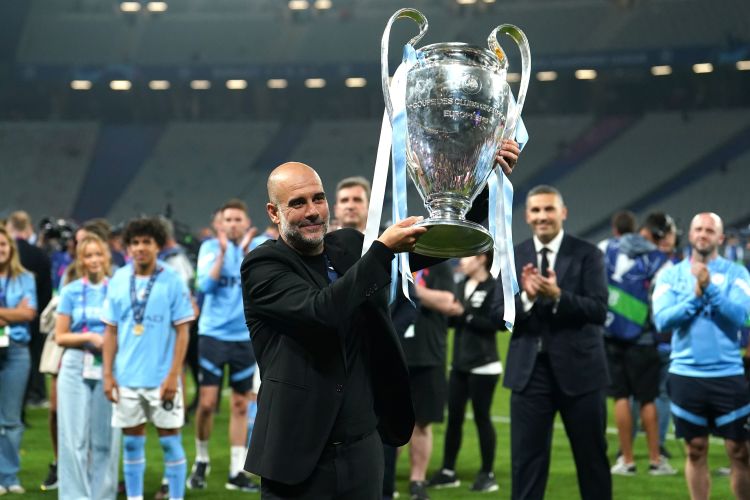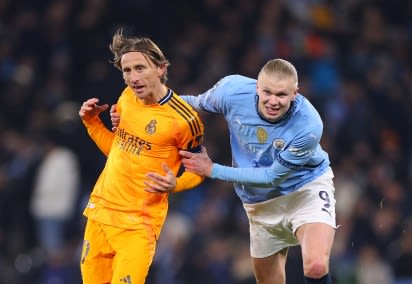Inside the Mind of a Soccer Player: How Mental Strength, Confidence, and Pressure Shape Football Performance
Physical talent wins matches. Mental strength wins seasons.
Soccer isn't just played with the feet, it's played with focus, resilience and emotional control. Whether it's rediscovering confidence after a slump, handling the weight of expectation, or sustaining motivation after success, a football player's psychology can determine how long he stays at the top.
How a Player's Mind Shapes Form and Performance in Football
Performance on the pitch is rarely just about physical ability. The state of a player's mind, a player's psychology, often dictates how freely he moves, how decisively he acts and how consistently he performs. Confidence, pressure and motivation are invisible forces that can make or break rhythm over the course of a season.
Why Confidence Drives On-Pitch Output
Confidence is a powerful multiplier. When a player scores or earns the trust of his coach, his body language and creativity change instantly. A striker like Erling Haaland can go from hesitation to instinctive dominance after rediscovering his scoring touch.
Haaland ended last season with just four goals in his final 10 appearances across all competitions. But, he started this campaign on fire with 19 goals in his first 15 matches across all competition for Manchester City.
That turnaround isn't just tactical, it's mental. A confident striker attacks space earlier, takes shots without overthinking, and plays with freedom, proof that belief often unlocks performance more effectively than any formation change.

How Pressure and Expectation Affect Footballers
Pressure separates the mentally strong from the fragile. In high-stakes matches like title races, derbies or relegation battles, the weight of expectation can either sharpen focus or cause paralysis.
Jude Bellingham has shown how emotional control under immense spotlight can sustain elite performance. During his first season with Real Madrid, the 22-year-old thrived in the chaos, often dictating games late and thriving in clutch moments, contributing 34 goal contributions in 39 appearances across all competitions for the Merengues.
For some, pressure feels heavy, for Bellingham, it's a platform. His consistency under constant scrutiny proves that composure and confidence can elevate talent to reliability.
Motivation, Setbacks and the Mental Reset
Mental strength is also tested by adversity. Being benched, losing form, being in conflict with the board or facing public criticism can derail even the best players. But how one reacts defines their season.
Marcus Rashford is the perfect example. After an uncertain year at Manchester United, he rebuilt confidence through discipline and a mental reset over the summer. His move to Barcelona rejuvenated him: 13 goal contributions in 16 appearances across all competitions this season, show a player who turned frustration into focus. Those who adapt mentally convert doubt into energy and energy into results.

Resilience and Mental Steel: The Invisible Traits Behind Elite Consistency
Elite performance isn't about avoiding setbacks, it's about how quickly players recover from them. The best athletes aren't immune to pressure or criticism, but they have traits to reframe both. The 2025/26 season has already shown how veterans like Cristiano Ronaldo, Luka Modric and Olivier Giroud continue to fight decline using pure mental toughness.
Handling Failure and Criticism
Cristiano Ronaldo, at 40 years old, is rewriting the concept of longevity. Instead of fighting public skepticism, he's using it as motivation. Extending his Al Nassr contract through 2027 and continuing to score in crucial matches, Ronaldo has reframed "pressure" into a structure for excellence. His open pursuit of the 1,000-goal milestone has become his mental compass, converting noise into purpose. For him, criticism isn't a burden, it's oxygen.
Long-Term Focus
Few embody sustained attention to detail like Luka Modric. At 40 years old, his move to AC Milan could have been a graceful exit. Instead, he arrived in Serie A and immediately influenced games, bringing his forever motivation and earning early-season MVP recognition.
Modric's secret is simple: control what you can. He reads the game like a chess player, balancing risk and tempo with precision. His professionalism, from diet to tactical study, shows how mental discipline extends elite performance long after most peers fade.
Recovery From Adversity
Olivier Giroud's story this year is another lesson in resilience. After an extremely quiet stint with LAFC and a mid-season exit, he reset at Lille, and within 11 minutes of his Ligue 1 debut against Brest, found the net. That goal didn't just restart his career, it redefined his narrative.
His veteran instincts, refined movement and clear decision-making come from one thing: mental reset. Giroud's comeback reminds us that form is often the byproduct of a belief rebuilt behind the scenes.
Between Pressure and Release: How the Mental Game Shifts After Major Tournaments Victories
The line between glory and exhaustion is thinner than it looks. After achieving everything, even dominant teams must find new purpose. Manchester City's 2024/25 campaign, following their historic treble, shows exactly how success reshapes a team's mental landscape.
The Post-Tournament Hangover
Manchester City began the 2024/25 season with more than just new titles, they carried emotional fatigue. After winning the Premier League, FA Cup and Champions League, Pep Guardiola's squad faced a new challenge: motivation. The hunger that fueled their treble run was hard to replicate once history had already been made.
Early in the campaign, the signs were subtle but telling: slightly slower pressing sequences, dips in aggression and lapses in focus. Guardiola admitted that the hardest task wasn't tactical, but psychological, "to make them hungry again." It wasn't only about legs or injuries, it was about resetting the collective mind.

The Confidence Boost Effect
Yet, success also creates calm. City's core entered 2024/25 with the composure of champions. Players like Phil Foden and Bernado Silva began matches with a quiet assurance, handling tight games with minimal panic. Their treble run didn't just boost belief, it built emotional stability. Late winners, game management and calm under pressure all stemmed from mental maturity. It's the evolution of expectation: not hoping to win, but trusting they will.
Redemption and Motivation
While team success can dull hunger, individual redemption reignites it. Jack Grealish and Julian Alvarez, both limited during key treble moments, entered campaigns with their new clubs Everton and Atletico Madrid with personal missions.
Grealish, now starring with Everton, has five goals and 24 chances created in 10 appearances, proving he's far from fading. Alvarez, thriving at Atletico Madrid, has nine goals and four assists in 15 matches across all competitions this season.
Both are channeling motivation differently: not chasing trophies, but now chasing impact. Guardiola's philosophy of inner competition keeps players psychologically sharp, a reminder that relevance can be just as powerful a motivator as glory.


Check Grealish's full stats here.
Check Alvarez's full stats here.
Final Thoughts: The Unseen Edge
Stats can tell us what happened. Psychology explains why.
From Erling Haaland's confidence burst to Luka Modric's timeless focus and City's mental recalibration, the pattern is clear, mental strength isn't a bonus: it's the foundation. Every goal, every comeback and every season hinges on how players manage their minds under pressure.
For teams and fans alike, understanding that side of the game is the real edge, because in modern football, the brain is just as decisive as the ball.

FAQ
How does confidence affect a soccer player's performance?
Confidence increases decision speed, risk-taking, creativity, and scoring efficiency. Players perform faster and more instinctively when confident.
Why do footballers lose form?
Form dips commonly stem from confidence loss, pressure, fatigue, tactical changes, or personal stress. Psychology is often the primary factor.
How do top players handle pressure?
Elite players use routines, mental framing, and emotional regulation to perform under scrutiny. Examples include Bellingham and Modric.
How does motivation change after major wins or tournaments?
Teams often suffer emotional fatigue or reduced hunger following major achievements, requiring mental reset methods to maintain standards.



































